
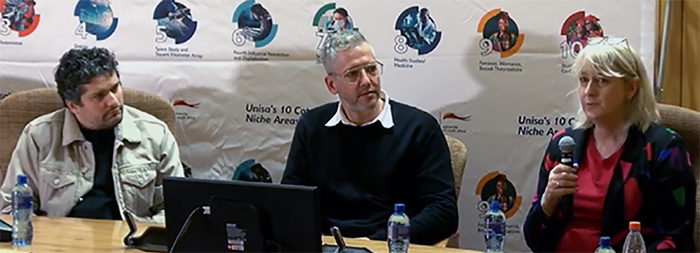
From left: Dario Fanucchi (Isazi Consulting), Mic Mann (UBU and SingularityU Africa) and Jaye Richard-Hill (Microsoft)
Opening the panel discussion on Catalytic Niche Area 10: Student support and co-curricular activities at Unisa’s Catalytic Niche Area Research Symposium, Dr Denzil Chetty, Head of the Academic Development Open Virtual Hub in the Department of Tuition Support and Facilitation of Learning, emphasised that institutions of higher learning must consider how they build their competencies and capacities to ensure that they produce competent and employable graduates.
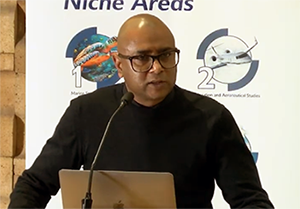
Dr Denzil Chetty (Unisa)
The discussion, which took place on 31 July 2025, brought together industry experts to unpack the theme Developing student digital resilience in African higher education – A translational research agenda in the context of open distance e-learning (ODeL).
Chetty stated: "The discussion also looks at the shifting educational terrain in Africa, and to highlight that digital resilience is no longer an option, but we must think more strategically around this necessity". He added: "Unisa, as an ODeL institution, has the opportunity to leverage this strategically in favour of its students".
Jaye Richard-Hill, Senior Education Director at Microsoft, remarked that when major organisations like Microsoft recruit, they look for practical demonstration of the skills that the candidates learnt in higher education. She explained: "What I noticed with successful candidates is that they also complete additional industry-relevant short learning programmes concurrently with their degrees. Some are free on particular platforms". According to Richard-Hill, this demonstrates a desire and passion to work in a specific industry and gives the candidates a competitive advantage.
Richard-Hill further said that organisations test whether the candidates researched them, what they stand for, and the prospects of the job they are applying for. "We are moving into the sixth industrial revolution, which involves deep artificial intelligence (AI) integrated with the physical being and advanced robotics, among others," she said. "Despite how overwhelming that may be for students, they need to consider these platforms within their course designs and mitigate challenges." She also advised higher education institutions to be intentional about the technologies they use for teaching and learning.
Additionally, Mic Mann, Chief Executive Officer of UBU and Co-CEO of SingularityU Africa, said: "My organisation focuses on how we educate people for future-relevant skills as job roles are rapidly changing". He said that they create various ways of virtual learning, thus unleashing critical thinking, problem solving and creativity using AI. Nonetheless, Mann also said that the fake degree market must be dealt with intensively to ensure that students possess real technological skills.
Mann added that with the continuously advancing technology and AI doing many tasks for human beings, the world of work will change, and people will have to consider adapting to it. "We also see how AI is integrated in the education sector today, where learners in some schools spend some time on technological devices, then interact in physical groups. This helps to enhance human-to-human problem solving, collaboration and critical thinking," he said. "Accordingly, the education system is set for disruption."
Dario Fanucchi, Co-founder and Technical Director of Isazi Consulting, noted: "We prove value to our customers; therefore, when we employ people, they too must prove value to the organisation". He added that candidates must prove that they are AI-native, as a lack of that skill can lead to them being replaced by AI. "However, AI users must understand the limitations of the technology they use," he stated. For Fanucchi, people who are entrenched in advanced technology adapt better to it.
Providing advice to entrepreneurs, Fanucchi concluded: "As much as you can use your lived experience to change the world for the better, and identify and solve problems around you in the physical world, this is not something you can easily automate. Nonetheless, it is critical for entrepreneurs to look around them and determine what is broken and make a difference in that area."
* By Nancy Legodi, Acting Senior Journalist, Department of Institutional Advancement
Publish date: 2025-08-05 00:00:00.0
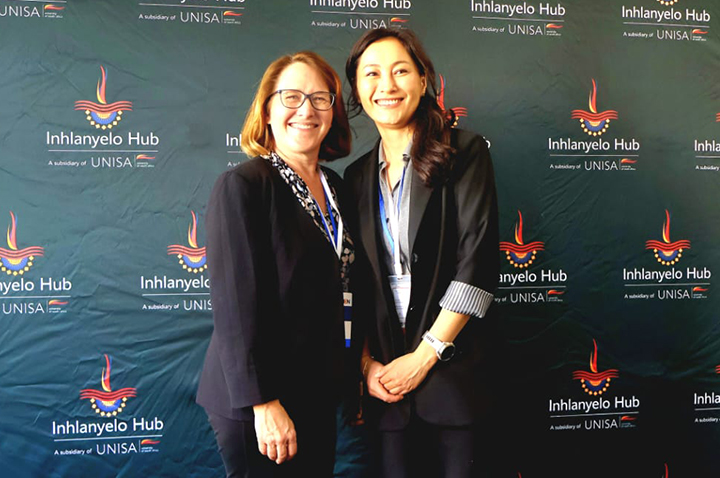 Unisa roundtable focuses on empowering SA women to lead in innovation
Unisa roundtable focuses on empowering SA women to lead in innovation
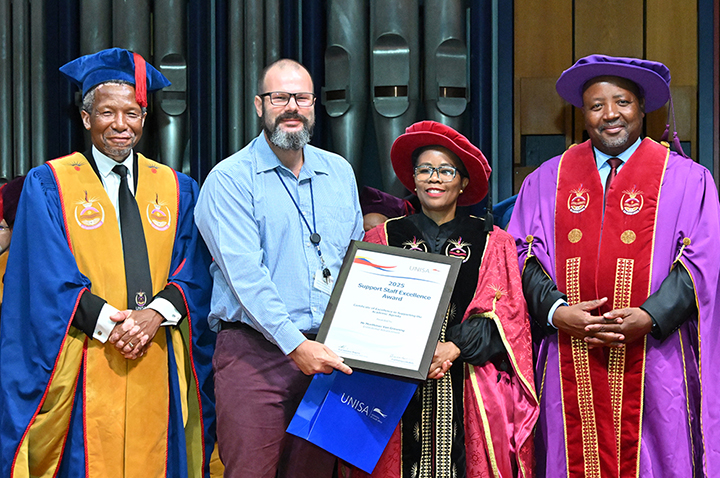 Unisan recognised for web excellence
Unisan recognised for web excellence
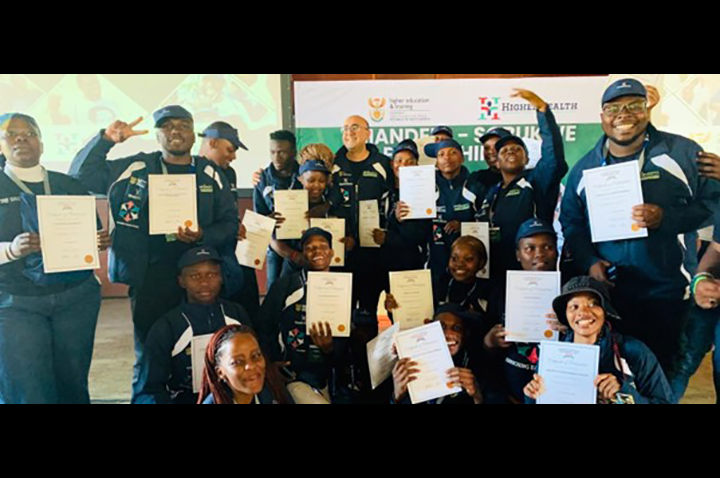 Office of the Dean of Students participates in leadership camp
Office of the Dean of Students participates in leadership camp
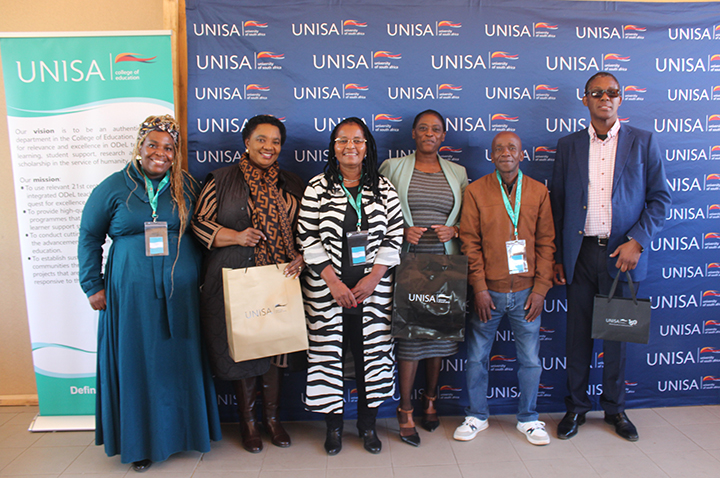 Unisa project fosters digital and pedagogical innovation in Limpopo schools
Unisa project fosters digital and pedagogical innovation in Limpopo schools
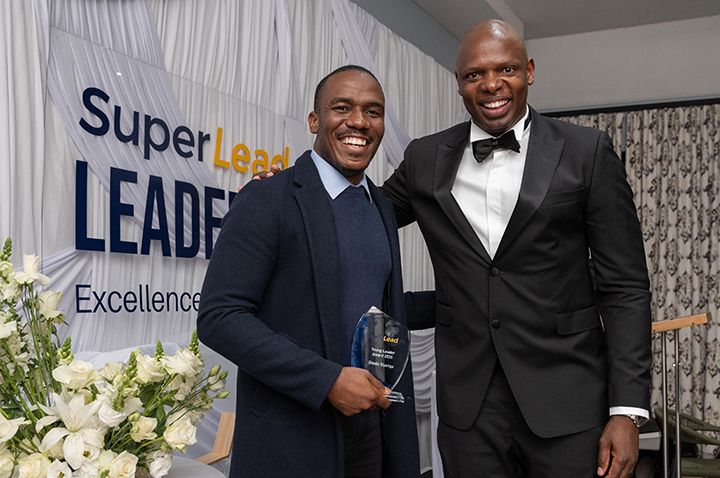 Unisa student wins prestigious national leadership award
Unisa student wins prestigious national leadership award